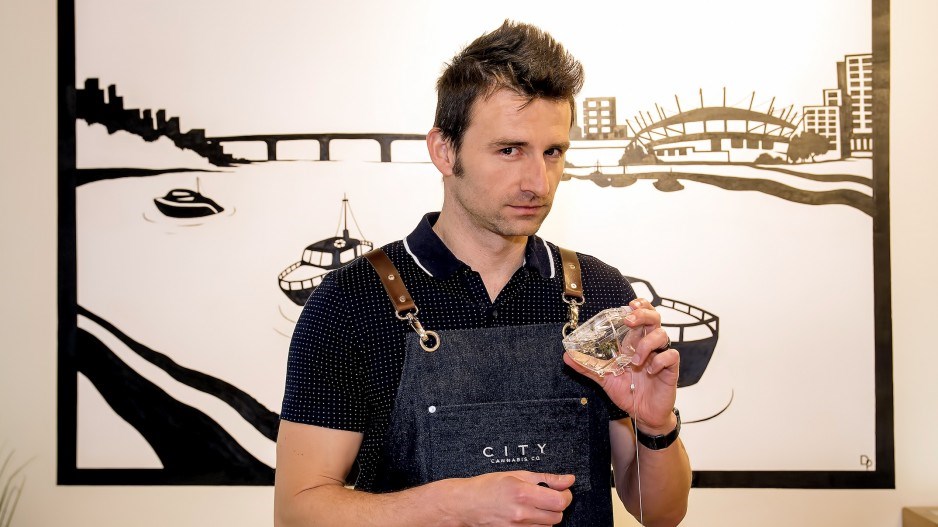While sales for legal cannabis soared in B.C. in the first half of 2022, retailers say those glory days have come to an abrupt end and that the entire industry could collapse.
Statistics Canada data show British Columbians spent more than $314.5 million on legal cannabis products in the first six months of 2022, up more than 24 per cent from the nearly $253.8 million that they spent in the same six months of 2021.
Spending in each of the six months was considerably higher than the same month in 2021, with the more than $54 million spent in June being almost 22 per cent higher than the more than $44.3 million spent in June 2021.
The nation's number cruncher is set to release data for this month's sales in October. When it does, there will almost certainly be the first drop in year-over-year legal-cannabis spending in a month since it started collecting data.
The first January-to-June period for which legal cannabis sales in B.C. are available was in 2019, given that Canada legalized cannabis sales on Oct. 17, 2018. In that period in 2019, British Columbians spent more than $16.9 million on cannabis, or less than six per cent of what they spent this year.
The sharp drop in sales today is because British Columbia General Employees Union (BCGEU) workers on Aug. 15 started their ongoing strike at British Columbia Liquor Distribution Branch (BCLDB) warehouses in Richmond, Delta, Kamloops and Victoria.
All legal cannabis in B.C. flows through those warehouses and no product is now being delivered to the province's 441 licensed stores.
"This is going to kill our sector in B.C.," Association of Canadian Cannabis Retailers executive director Jaclynn Pehota told BIV today. "The producers aren't being paid either right now."
She estimated that about 50 legal cannabis stores have closed or severely curtailed operating hours, and that about 400 people have lost their jobs.
"We closed our store in Comox last night, and we are closing our Robson St. location and Fraser St. location tonight," City Cannabis CEO Krystian Wetulani told BIV this afternoon.
"We are transferring all our products to our Cambie St. location, which might be able to operate for another four or five days maximum. We're having to cease operations because of a lack of inventory and we've had to lay off 50 staff right now. It's not a fun day for us."
Not all legal cannabis retailers are yet hurting. Evergreen Cannabis owner Mike Babins told BIV that he regularly carries a lot of inventory and that his store at 2868 West 4th Ave. is "stocked."
Wetulani, Babins and other retailers have told BIV that the solution is for the provincial government to get out of the business of delivering cannabis.
B.C. had planned to allow craft-cannabis producers, or small operators, to start selling cannabis directly to retailers on Aug. 15 – the same day that BCGEU started picketing warehouses. The B.C. government then alerted craft-cannabis producers that the province was indefinitely postponing the planned direct-delivery program.
"The [BCLDB] must be particularly mindful of potential labour-relations sensitivities in the context of active bargaining negotiations," the BCLDB wrote to craft-cannabis producers to explain why it had suddenly changed its Aug. 15 direct-delivery launch.
Wetulani said that if the government had not postponed that program's launch, his stores would likely be able to stay open.
"Even if we're allowed to sell a couple strains per store, it would have allowed us to stay operating and keep staff and at least given us sort of a lifeline," he said.
Black Market operators have loitered outside closed legal cannabis stores and made sales to customers who would have purchased legal products.
Pure Sunfarms Corp. CEO Mandesh Dosanjh called the situation a gift to "organized crime."
Pehota said she believed that the many mom-and-pop cannabis growers and sellers, who made a modest income from that side business, likely stopped that once cannabis became legal. The remaining people who operate in the black market are therefore people willing to take more risk.
"The people who have stepped into that niche are people who are much more organized," she said, adding that it was impossible to say who makes up sellers in the black market because there are no statistics.
Solicitor General Mike Farnworth has urged British Columbians to not buy illegal cannabis because government testing revealed 20 samples of seized cannabis showed traces of 24 different kinds of bacteria, as well as fungi and heavy metals.
Plenty of shootings and murders in public places have happened in the past year, with police then explaining that the incidents were likely gang related.
BIV yesterday asked the Ministry of Solicitor General if the province would act to enable legal cannabis to flow by making cannabis an essential service or allowing producers to sell directly to stores. The ministry punted the request to the Ministry of Finance and BIV today repeated its media request to that ministry but no one has yet responded.
Both the union and the government are not commenting on contract negotiations but the two sides have agreed to meet and try to find a solution.
The union has been calling for wage increases to meet the cost of inflation, which in B.C. ran at eight per cent in July. The government has offered a $2,500 signing bonus as well as an 11-per-cent wage hike over three years.
To check out data for legal Canadian cannabis sales, click here.




